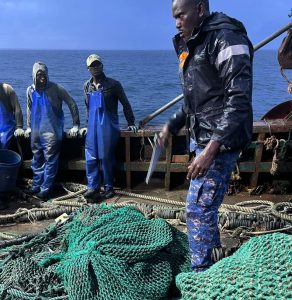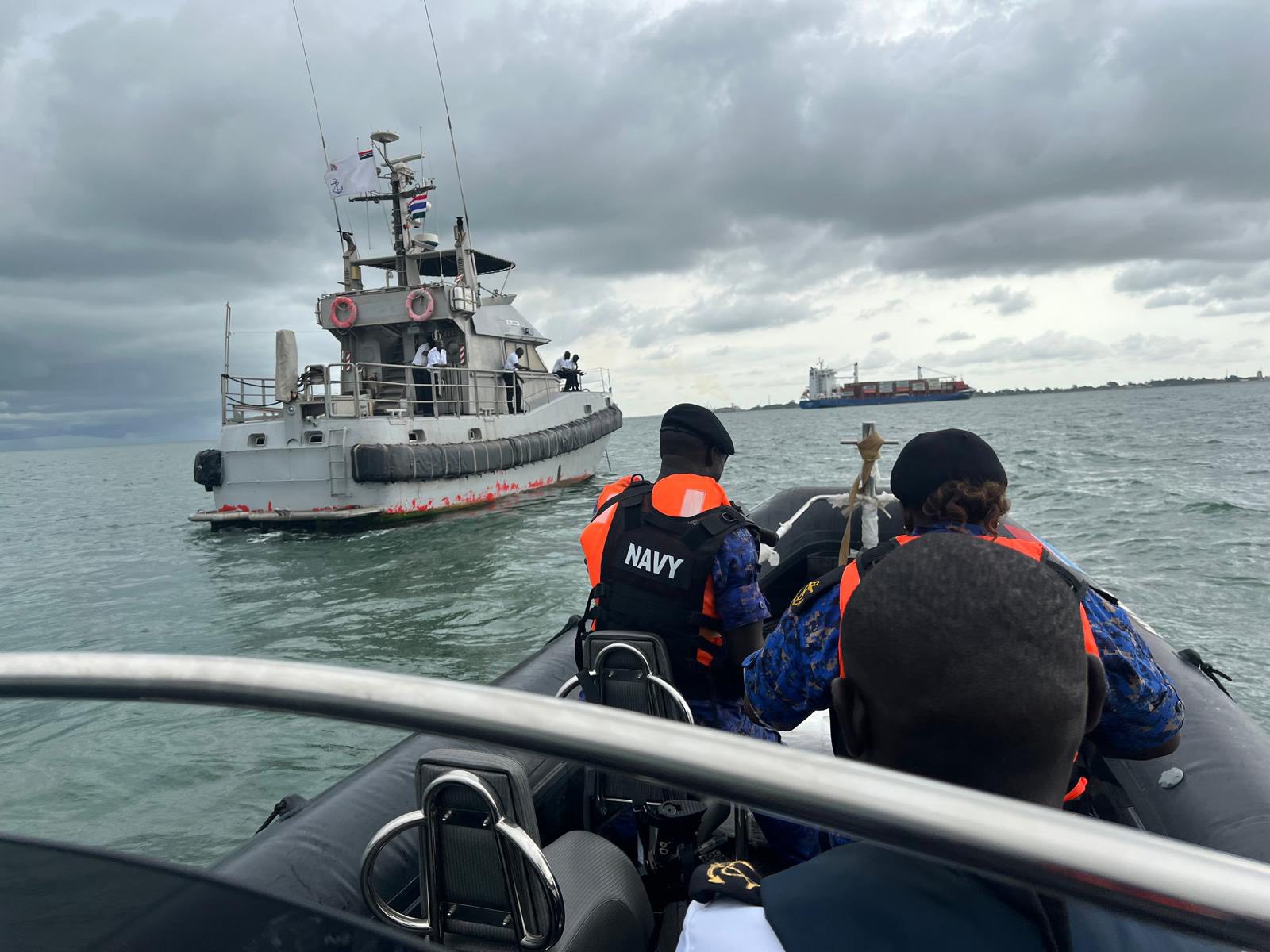Gambiaj.com – (BANJUL, The Gambia) – The Gambia Navy has intercepted and detained three foreign fishing vessels for violating national fisheries and maritime laws during a routine surveillance operation in the country’s Exclusive Economic Zone (EEZ).
The arrests took place in the early hours of Friday, July 4, 2025, following a Fisheries Protection Patrol aimed at curbing illegal fishing activities in Gambian waters.
The detained vessels—FV MAJILAC, FV LORD, and FV ELSATERMEN ALLAH—were found committing multiple offenses, including the use of illegal fishing gear, fishing without proper authorization, and operating without valid safety certificates.

According to military sources, the seizure is part of the Navy’s continued efforts to enforce maritime laws and safeguard the country’s marine resources.
The vessels were escorted to shore and are being held pending further investigation and legal action by relevant authorities.
“This operation underscores the Navy’s unwavering commitment to protect The Gambia’s territorial waters and preserve the sustainability of our fisheries sector,” the Gambia Armed Forces said in a statement.
In order to boost the Gambia Navy’s operational capacities, the British High Commission in The Gambia in June handed over two state-of-the-art Interceptor Rigid Hulled Inflatable Boats (PAC 22 RHIBs) to the Gambia Navy.
One of these Rigid Hulled Inflatable Boats (PAC 22 RHIBs) could be seen in the pictures showing the navy interception of the three foreign vessels caught in The Gambia’s Exclusive Economic Zone (EEZ)
This latest support from the UK aligns with ongoing initiatives by ECOWAS and international partners aimed at strengthening coastal security and inter-agency coordination.
Illegal fishing has long been a concern for The Gambia, with authorities ramping up patrols in recent years to prevent resource exploitation and ensure compliance with national regulations.
For The Gambia, where fish is a staple of both diet and livelihood, the stakes are especially high. Illegal fishing threatens not only marine biodiversity but also the country’s food security and economic stability. In recent years, Gambian communities have raised alarms over dwindling catches, with artisanal fishers struggling to compete against large foreign trawlers operating close to shore.










